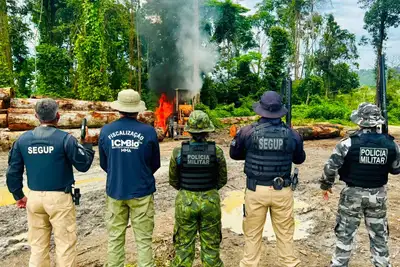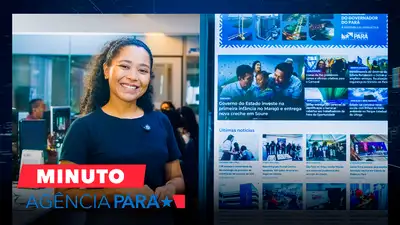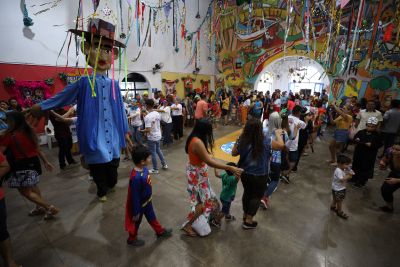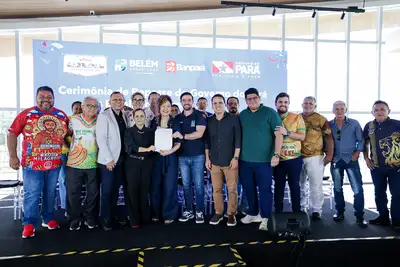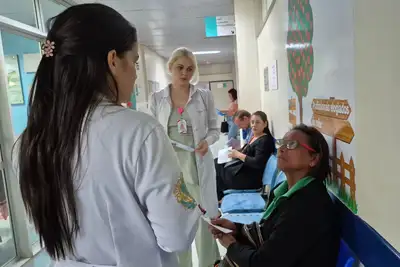CIIR highlights services for people with visual impairment and deafblindness
On International Deafblindness Day, June 27, the Integrated Center reinforces its commitment to specialized assistance for people with disabilities
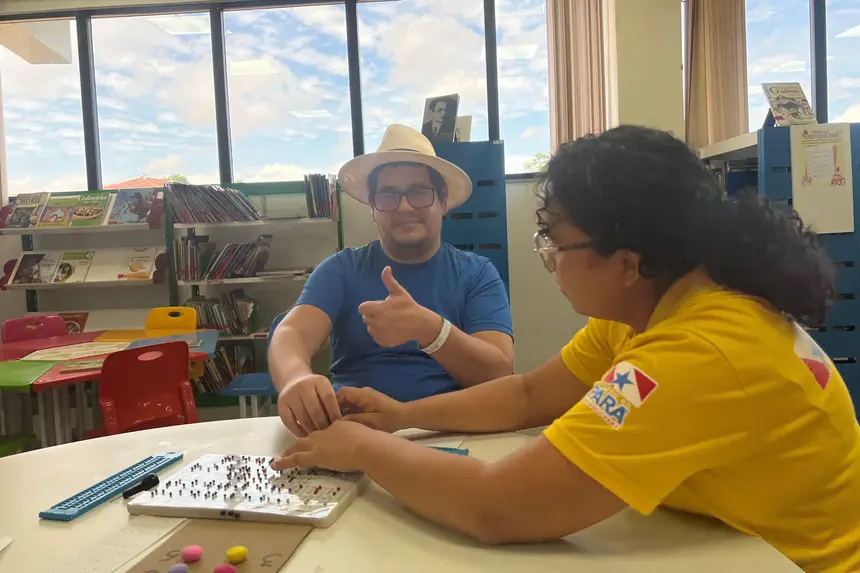
The International Deafblindness Day is more than just a date on the calendar. It is an invitation to reflect on the challenges, rights, and, above all, the potential of people living with this condition. In Pará, the Integrated Center for Inclusion and Rehabilitation (CIIR), in Belém, is a reference in specialized care for people with visual impairments, including those diagnosed with deafblindness (a combination of visual and hearing impairments, at different levels). CIIR offers support, rehabilitation, and promotion of autonomy.
At CIIR, users have access to a multidisciplinary team composed of physiotherapists, occupational therapists, speech therapists, psychologists, social workers, and educators. Professionals who work together in developing sensory, motor, communication, and social skills.
More than just technical assistance, the work developed at the institution is centered on humanized care. Active listening and welcoming the demands of users and their families are fundamental in the rehabilitation process and the development of autonomy.
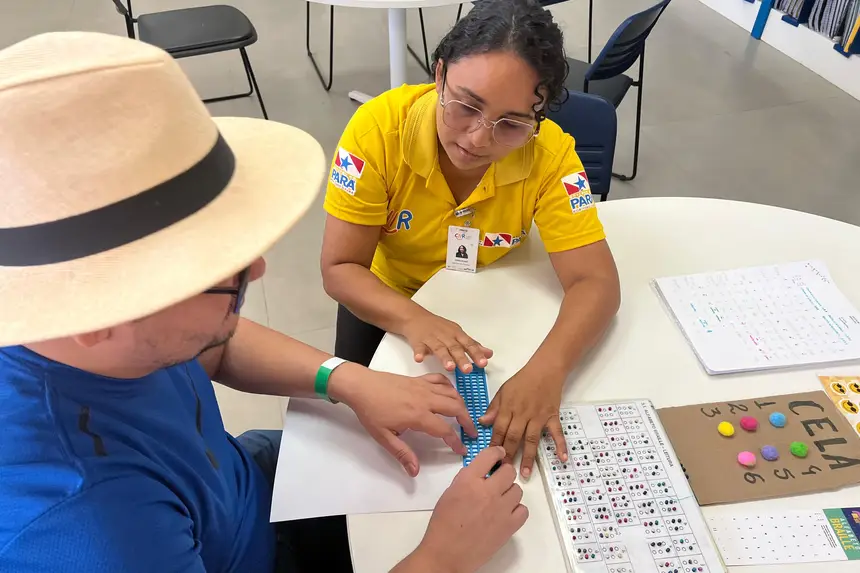
Among the resources used are tactile Brazilian Sign Language (Libras), alternative communication systems, orientation and mobility training, as well as encouragement to use Braille and other tools that ensure more independence in daily life.
Communication that connects and liberates
For those living with deafblindness, communication is one of the greatest challenges, and it is also one of the greatest achievements when accessible. "Accessibility is very important. Here at CIIR, I have an interpreter who helps me, something that most places do not offer. This makes all the difference. Communication is what opens doors," reports Josias Camelo da Silva Neto, 38, a CIIR user.
Diagnosed with Usher syndrome (a rare genetic condition that progressively affects hearing and vision), Josias began his journey at CIIR in 2022 and has been in an active rehabilitation process since 2024.
Among the activities he enjoys most at the service, Josias highlights psychological support, medical care, orientation training with a cane, and, more recently, Braille classes. "At first, I was very scared. The cane made me feel ashamed, it seemed like everyone was looking at me. But then I began to understand that it gave me freedom. Today, I even researched the colors of canes and what they mean. Learning Braille is another challenge, but I know it will help me a lot," he shares.
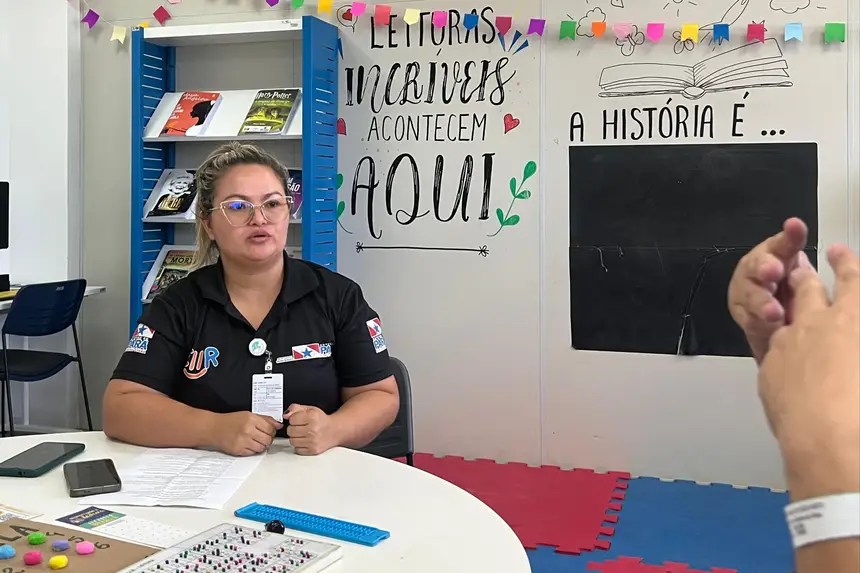
Josias also talks about the impact of the assistance in his life. "When I could still see better, I watched TV, talked, had more freedom. After I started losing part of my vision too, I felt isolated, as if I were trapped in silence. Here at CIIR, I managed to open my mind, understand my condition, and, above all, gain autonomy. It helped a lot with my health and my life," he states.
Approval – For Eliete Silveira da Silva, Josias's mother, the path is not easy, but it is possible with faith, love, and patience. "My advice to mothers is to have a lot of patience and ask God for grace, because it is not easy. There are stressful days, days when we lose patience. But with love, we overcome each stage," she shares.
Challenge that requires empathy and commitment
Naiandra Matos, a Libras interpreter and rehabilitation center professional, closely follows Josias's progress. For her, working with deafblind users requires sensitivity, creativity, and empathy. "When he arrived, he wouldn't even accept the cane. He was ashamed. Our biggest challenge was working on acceptance. Once he overcame that, everything started to evolve," she explains.
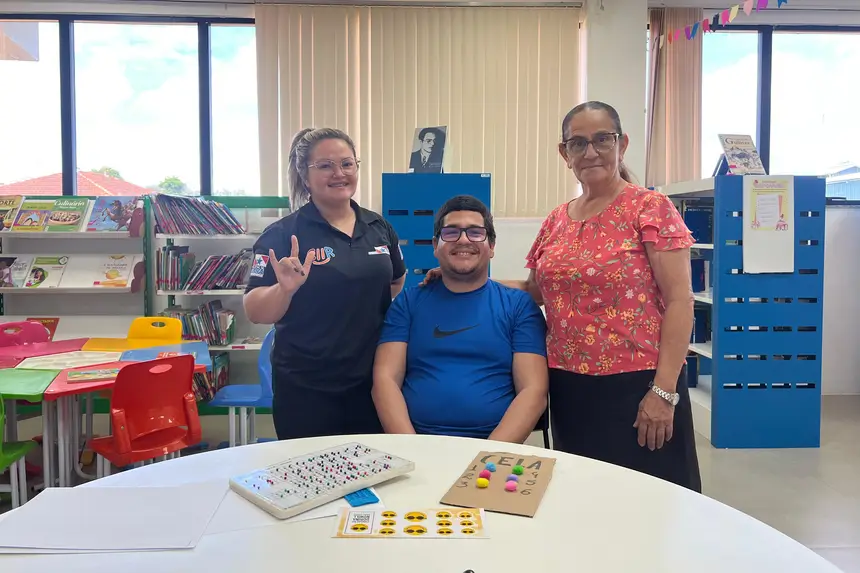
She emphasizes that dealing with deafblindness means understanding that when one disability already brings challenges, two combined require even more empathy from society. "If it were me, if it were my child, if it were someone in my family, how would I like to be treated? This is where inclusion is born. Our job is, at the very least, to offer that," reflects Naiandra.
At CIIR, the assistance provided to people with visual impairments is carried out by a highly qualified multidisciplinary team that works in an integrated and humanized manner. Users have access to services in physiotherapy, occupational therapy, speech therapy, psychology, social work, and pedagogy, as well as orientation and mobility. The work focuses on developing functional skills, alternative communication, autonomy training, and emotional strengthening, always respecting the particularities of each person, with a focus on inclusion and quality of life.
Reference – CIIR is a reference in Pará for medium and high complexity assistance to people with visual, physical, auditory, and intellectual disabilities. Users can access the Center's services through referrals from health units, welcomed by the Regulation Center of each municipality, which in turn forwards to State Regulation. The request will be analyzed according to the user's profile by the State Regulation System (SER).
Service: The Integrated Center for Inclusion and Rehabilitation is an agency of the Government of Pará managed by the National Institute for Social and Human Development (INDSH), in partnership with the State Department of Public Health (Sespa). The unit is located at Rodovia Arthur Bernardes, No. 1,000, in Belém. For more information: (91) 4042-2157 /58 /59.
Text by Danielle Carvalho / Ascom CIIR


